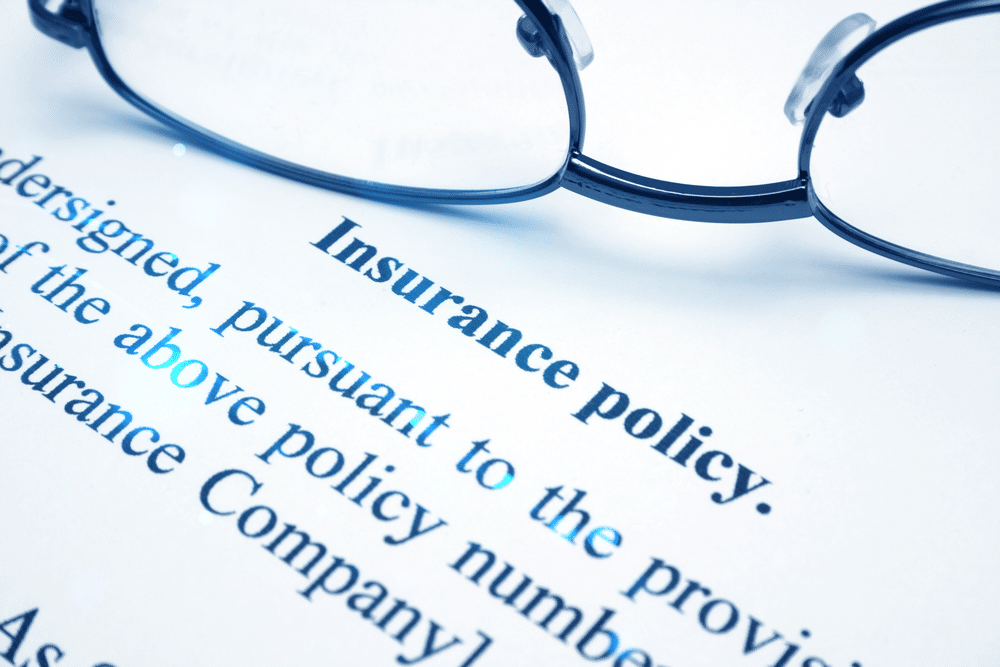
Nine in ten small business owners aren’t confident they have adequate insurance coverage, Forbes reports. Nearly 30 percent don’t have any business insurance at all. This is concerning, given how vulnerable small businesses are to even small shifts in cash flow or profitability. However, most say this is because they don’t know what types of insurance they need, and that’s an easy fix.
On this page, we’ll walk you through some of the most common types of business insurance coverage, the benefits of specific types of insurance, and specific requirements. Due to the complexity of insurance and the diverse needs of businesses, it should be thought of more as a primer that can help guide your future learning or prepare you for a discussion with a risk management professional or broker.
Why Do Businesses Need Insurance?
The importance of insurance to business owners cannot be overstated. Forming an LLC or corporation protects your personal assets from business issues, but your business assets remain at risk unless you protect them with insurance. Protecting your small business with the right insurance products can safeguard you against significant financial losses due to business property damage or liability claims.
The government usually leaves these decisions up to you most of the time. However, state and federal laws sometimes require businesses to have specific types of insurance to ensure people impacted by your business are protected. You’ll learn about both optional and legally required types of insurance below.
Legally Required Insurance
The federal government requires businesses with employees to have specific types of insurance, according to the U.S. Small Business Administration (SBA).
Workers’ Compensation Insurance
If you have employees, you must have workers’ compensation insurance. It ensures that your team has medical, wage, and other financial benefits if they’re hurt or become ill on the job.
Disability and Unemployment Insurance
Unemployment insurance is taken care of through the Federal Unemployment Tax Act (FUTA) and your state unemployment insurance (SUI). Federal disability requirements are addressed through Social Security.
State-Specific Coverage
Individual states will have their own business insurance requirements. For instance, most require commercial auto insurance if your business has vehicles. Five states, including California, Hawaii, New Jersey, New York, and Rhode Island, have state-mandated disability insurance requirements. These are intended to supplement federal disability coverage.
Industry-Specific Coverage
States sometimes require professionals within specific industries to carry specific types of insurance, too.
Professional Liability Insurance
Doctors, lawyers, and real estate agents are routinely required to carry professional liability insurance. It protects the business against claims of negligence, copyright infringement, personal injury, and more from clients and consumers.
Contractor Professional Liability Insurance
Contractors and other building professionals are often required to carry contractor professional liability insurance. It protects the business against claims related to negligence, construction errors, omissions, and design issues. It also covers mistakes by third parties, such as plumbers and electricians. Contractor professional liability insurance usually supplements general commercial liability insurance. It can be purchased annually or for individual projects.
Business Owner’s Policy
You can sometimes purchase insurance for a small business as a bundle. A business owner’s policy (BOP) is one example. A BOP policy usually contains general business liability, business income, and commercial property insurance. While these types of insurance are not usually required by law, they’re popular forms of protection for small business owners and are usually purchased together regardless.
General Liability Insurance
General liability insurance for businesses typically covers property damage and bodily injury claims related to your products, services, or operations. If you rent, it may also cover damage caused to your landlord’s property.
Business Income Insurance
Business income insurance is sometimes called business interruption insurance or contingent business interruption coverage. It’s designed to replace income lost from a covered event, such as property damage. For instance, if a tree falls on your business or a vandal breaks your door, income insurance will cover any income lost while the repair is being made.
Commercial Property Insurance
Commercial property insurance covers property and physical assets that are damaged or lost due to specific events, such as fire, storms, or vandalism.
Management Liability Insurance
Management liability insurance is another bundled policy designed to protect directors, officers, managers, and business entities. It typically includes directors’ and officers’ liability, employment practices liability, fiduciary liability, and crime insurance.
Directors and Officers Liability Insurance
Often shortened to D&O insurance, directors’ and officers’ liability insurance shields directors and officers from personal losses if the company is sued.
Employment Practices Liability Insurance
Lawsuits involving employment practices have recently doubled, according to the U.S. Equal Employment Opportunity Commission (EEOC). Employment practices liability insurance (EPLI) covers a wide variety of claims, such as sexual harassment, discrimination, wrongful termination, wrongful infliction of emotional distress, and mismanagement of employee benefit plans.
Fiduciary Liability Insurance
If your company offers benefits, such as retirement and healthcare plans, your business can be liable for any mistakes your team makes in managing them. Fiduciary liability insurance covers legal costs for defending your business against claims made.
Fidelity and Crime Insurance
Fidelity and crime insurance protects your business against losses due to employee dishonesty, credit card forgery, the disappearance or destruction of property, and more.
Other Types of Insurance for Business
In addition to legally required insurance policies and those commonly bundled, your business may benefit from additional policies such as those covered below.
Product Liability Insurance
Manufacturers, retailers, and wholesale and distribution benefits often purchase product liability insurance. If someone claims your product harmed them, your product liability insurance can help cover your legal fees, the customer’s medical costs, and any settlements or judgments against your business. Considering that the typical jury now awards over $7 million in a product liability case, Forbes reports, this may be one of the most beneficial policies a company can obtain.
Business Overhead Expense Insurance
Business overhead expense insurance (BOE) can provide your business with monthly payments that allow it to continue operating while you’re disabled.
Cyber Liability Insurance
A single data breach now costs a typical business $4.45 million, according to IBM, and incidents are rising. Cyber liability insurance covers expenses such as legal fees, the cost to alert customers, and settlement fees if your computer system is hacked and data is lost or compromised.
Environmental Liability Insurance
General liability and property insurance policies often exclude coverage for loss or damage relating to the unexpected release of pollutants. Environmental liability insurance, also known as pollution insurance or pollution coverage, protects the business when claims relating to bodily harm and property damage arise. It can also cover business interruption and cleanup expenses.
Accounts Receivable Insurance
Accounts receivable (AR) insurance protects your business when it’s unable to collect payments when customers purchase goods or services on credit. This includes things like direct losses from non-payment, balances that become uncollectable due to damage to AR records, and indirect costs, including payments due on loans secured by your receivables.
Considerations for Business Owners When Selecting Insurance Coverage
Now that you have a good idea of what’s available, your next step is selecting commercial insurance coverage. Keep the following points in mind as you make your decision.
Assess Your Risk
You don’t necessarily need every type of business insurance outlined on this page. Consider which threats pose the most significant risk or what issues might cause irreparable damage to your business and safeguard against them.
Work with an Experienced Agent
It’s often helpful to work with an insurance professional who can help you identify risks and determine the proper levels of coverage for your business.
Shop Around
You can bundle the most common types of insurance for less than $400 per month, Forbes reports. Shop around for a fair deal, but be mindful of choosing the cheapest option. Companies that cut corners to cut costs can be challenging to work with and may drag their feet when you need their support the most.
Reassess Annually
Your risks will change as your business grows. Reevaluate your coverage annually to ensure you’re maintaining adequate coverage.
Improved Protection with the Right Insurance to Protect Your Business
Understanding the types of business insurance is crucial for every business owner, especially when navigating the complexities of protecting your small business. With many types of business insurance policies available, identifying the right types of insurance for your company is paramount. From errors and omissions insurance, which safeguards against professional mistakes, to commercial auto insurance for businesses that use vehicles, each type of insurance protects various aspects of your business operations.
For those running a home-based business, understanding that your personal homeowners’ policy may not cover business-related incidents is vital. Therefore, small business insurance tailored for home setups can fill this gap, offering liability coverage and property damage protection. Insurance costs vary based on the coverage needed, but investing in comprehensive business liability insurance can shield your enterprise from significant financial losses.
Moreover, business interruption insurance can be a lifesaver in the event of unexpected closures, providing compensation for lost business income. As your business evolves, so do your insurance needs. Therefore, regular consultations with an experienced insurance agent or broker can ensure you have the types of business insurance policies necessary to protect against the unique risks your business faces.
Streamline Your Receivables with Invoice Factoring
Invoice factoring provides instant payment on your B2B invoices, so it’s easier to cover insurance premiums, recover from setbacks, and grow your business. Although factoring isn’t insurance, many businesses that leverage it also see reduced bad debt because the creditworthiness of clients is confirmed as part of the process before extending credit. If you’d like to learn more or get started, request a complimentary factoring quote.
- Why Construction Subcontractors Should Advocate for Quick Pay Programs - February 2, 2026
- Business Financial Literacy Guide for Owners and Decision-Makers - November 25, 2025
- Full Guide to Factoring for Temporary Staffing Companies - October 10, 2025

